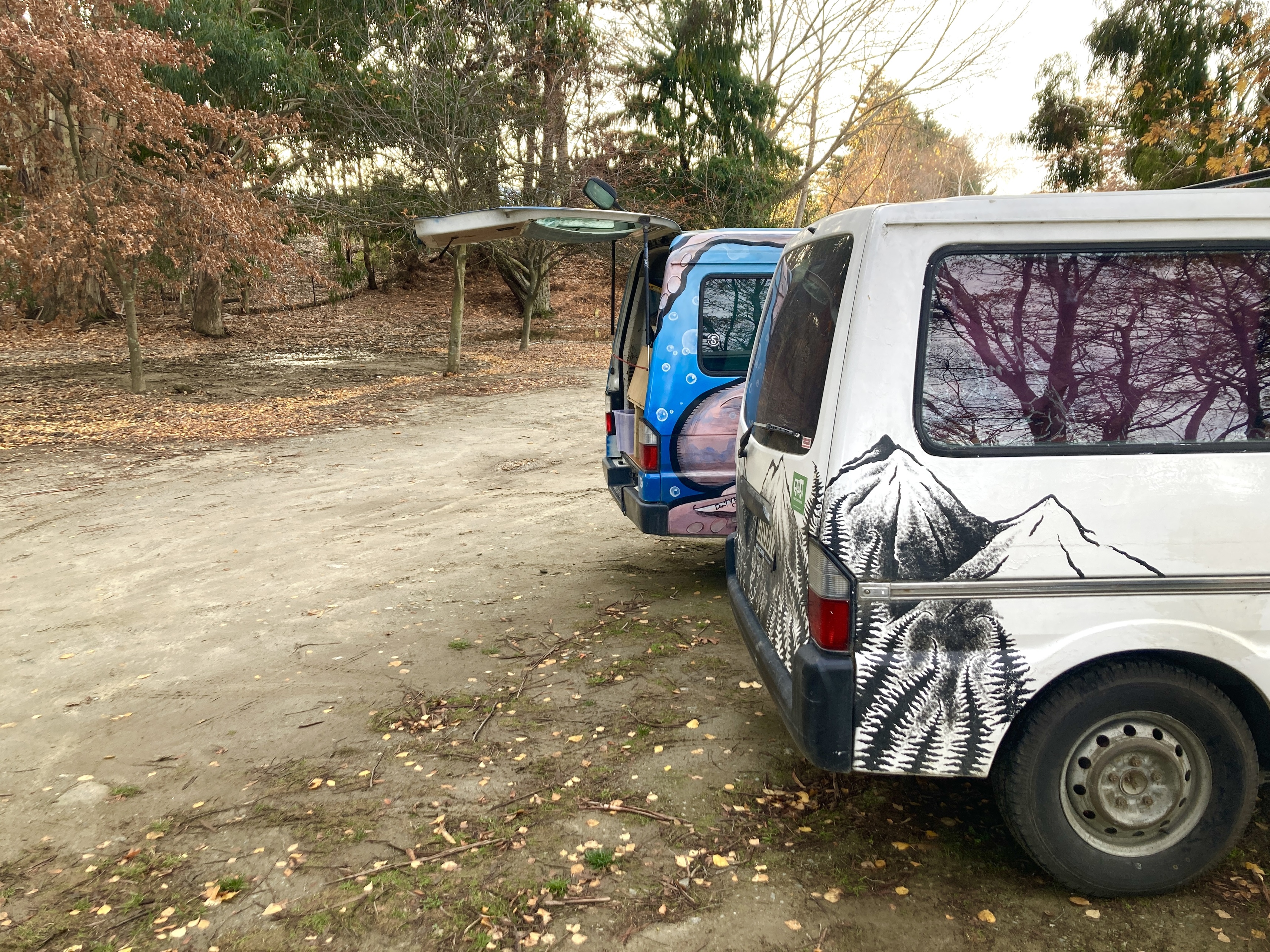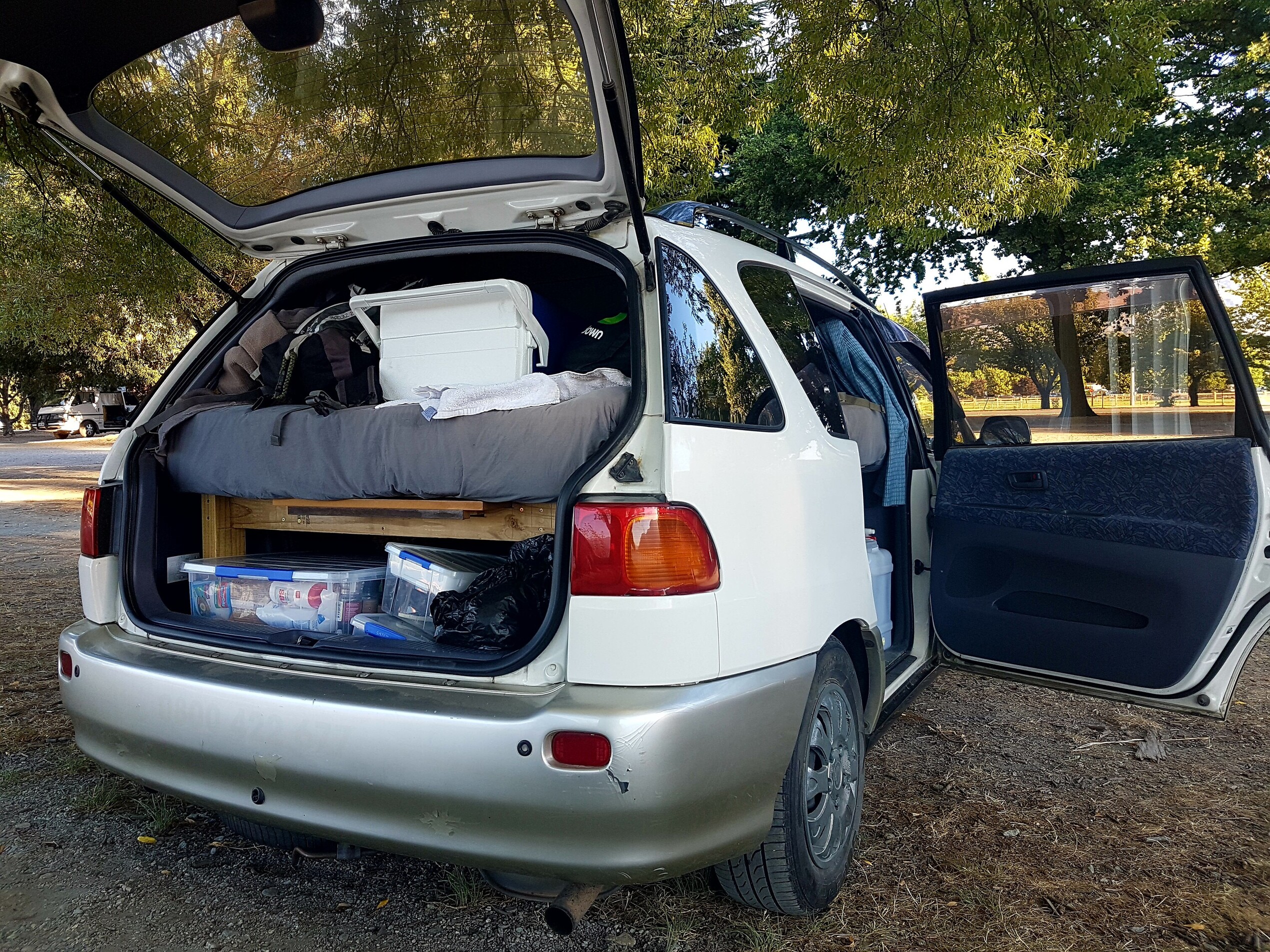‘Complex’ freedom camping issues addressed by bylaw

Staff Reporters
12 October 2025, 4:06 PM
 A “permissive” national freedom camping act meant the local bylaw is trying to solve “a complex situation”.
A “permissive” national freedom camping act meant the local bylaw is trying to solve “a complex situation”.A new freedom camping bylaw has been approved for the district, despite councillors raising concerns about its impact.
Queenstown Lakes District Council (QLDC) adopted the Freedom Camping Bylaw 2025 at its last meeting for the triennium (October 9), with staff saying the bylaw will “manage freedom camping activities across the district and ensure areas remain safe, protected and accessible to everyone”.
Some councillors, however, were not convinced.
Concerns were raised about freedom camping on rural roads, inconsistencies in how the bylaw is interpreted across the district, and the potential for the bylaw to be legally challenged.
Deputy mayor Quentin Smith (and the only incumbent Wānaka Ward councillor to be returned following Saturday’s election) voted against the bylaw.
“This has been a tough one for me and I am really torn on it,” he said.
“I can’t quite give myself to approve something that enables freedom camping in the urban areas. Reluctantly, understanding the consequences, I can’t bring myself to support it today, but I understand why others do.”
Councillor Niki Gladding (as of Saturday now a Wānaka Ward councillor) said there was a chance the bylaw could be legally challenged (as was the previous bylaw).
“I think this is going to impact some people more than others. It’s going to come down to education, signs, all of that stuff,” she said.
The new bylaw will come into effect on December 1, 2025.

Concerns about freedom camping on rural roads were reflected in submissions and by councillors.
Council staff noted they were restricted by a “permissive” national law - the Freedom Camping Act 2011 - which permits freedom camping by default on most council land around the country.
Councils can create bylaws to prohibit or restrict freedom camping in specific areas, but only to “protect the area, protect the health and safety of people who may visit the area, and protect access to the area”. Considerations such as the impact on amenity and economic concerns on private property and other land not managed or controlled by QLDC are excluded.
QLDC staff said this contributes to “a complex situation”.
Almost 400 submissions - most raising concerns about freedom camping - were considered by a hearing panel of councillors and amendments made to definitions, conditions, available parking areas and spaces.
The new bylaw allows freedom camping in 15 specified restricted areas, subject to specific conditions. It also allows freedom camping on sections of rural roads, subject to conditions including how close to the road a freedom camper can park their vehicle.
Freedom camping will be prohibited on most - but not all - roads within the district’s urban areas.
QLDC community services general manager Ken Bailey said the new bylaw will address a range of “perceived problems” associated with freedom camping in the district.
“Queenstown Lakes is the most popular place for overnight free camping in New Zealand, and this has led to a range of adverse impacts on land controlled and/or managed by QLDC,” he said.
“Given the context, it is difficult for the new bylaw to balance community concerns, with those who seek opportunities for freedom camping, and the limitations set out in the Freedom Camping Act 2011.”
He said council officers are now focused on developing a communications and education programme ahead of the 2025/26 summer period to raise awareness of the new bylaw and where and how freedom camping will be permitted across the district.
Councillors also approved the introduction of camping conditions at the Luggate Red Bridge Reserve to improve the management of freedom camping there.
PHOTOS: Wānaka App






